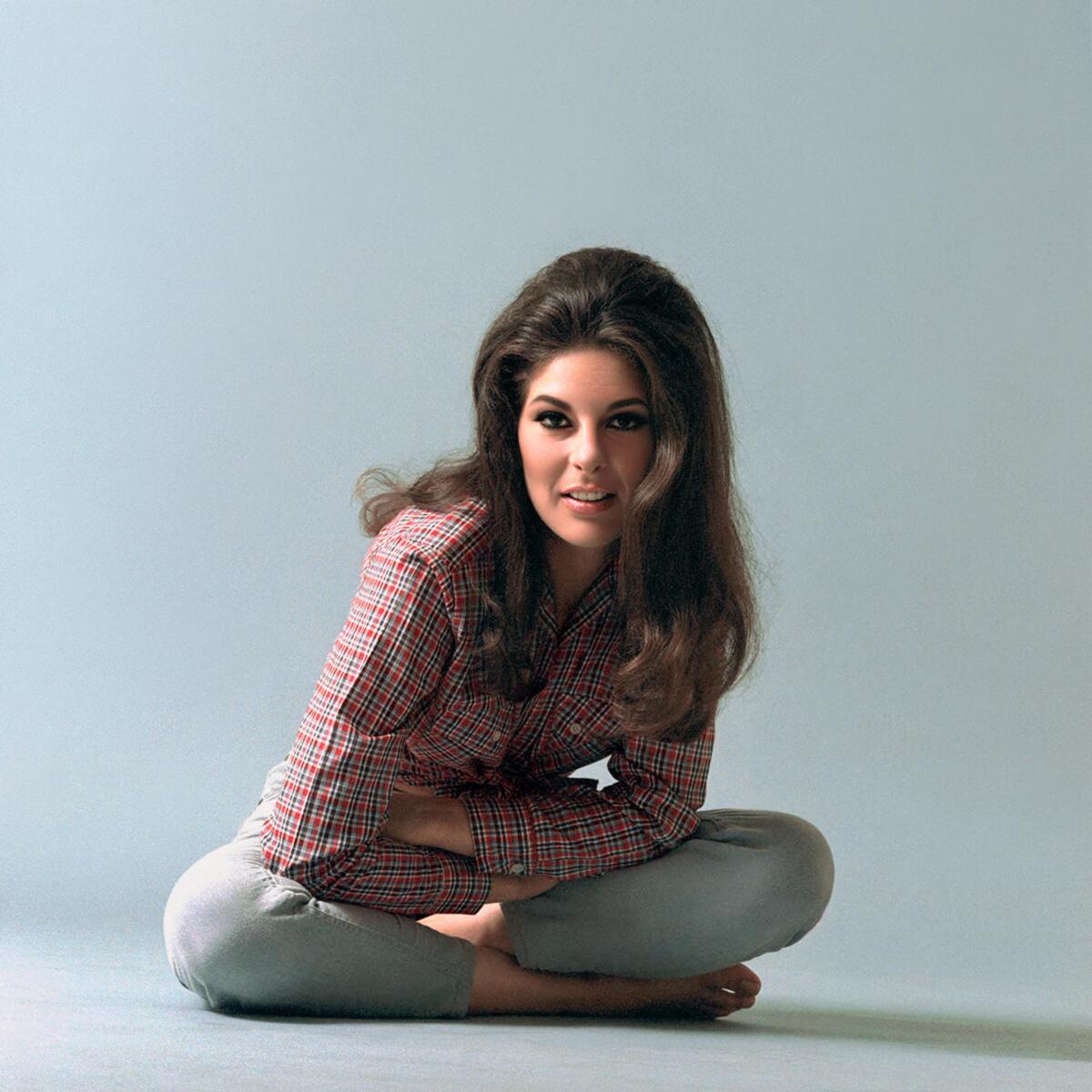Four decades since Bobbie Gentry shunned fame, a new box set restores her unrivaled legacy
This is not a story about what happened to Bobbie Gentry.
Plenty have attempted to unravel that mystery, which continues to be dissected every few years by journalists and admirers who can’t fathom (or accept) why an artist would walk away from her music career at the peak of her powers.
No matter what you might have read or heard, the enigmatic woman who wrote, sang and took “Ode to Billie Joe” to the top of the charts in the summer of 1967 is not lost. Bobbie Gentry simply does not want to be found.
Nearly 50 years after her final studio album was released, though, here we are still talking about one of pop music’s greatest vanishing acts, the star of her own ghost story.
Gentry is alive and presumably well at age 76, living back in the South, where she grew up, but she pulled off the unthinkable in the early 1980s: She disappeared. Poof!
After a stint in Las Vegas, Gentry turned her back on show business, never to return despite constant clamoring for her to do so. She left us with a trail of seven groundbreaking albums that became a road map of American roots music, bending country, soul, pop, folk, funk, jazz, show tunes and the blues to her own kaleidoscopic vision.
Since then, Gentry’s mystique, and esteem for her work, has only ballooned.
“She was a strange mix of Vegas song-and-dance and dark singer-songwriter,” says Jill Sobule, who made a splash with her 1995 hit, “I Kissed a Girl,” and paid her respects to her idol in 2009 with “Where Is Bobbie Gentry?”
“At first I wanted to know more about the mystery of what happened to her, but now I kind of just like it for what it is,” Sobule says.
A lavish new box set suggests we have been asking the wrong question about Bobbie Gentry all these years. It’s not important why or how she retreated from fame: We should be more attuned to why she mattered so profoundly, particularly to female musicians who still claim her as a touchstone.

Beyond ‘Ode to Billie Joe’: Listen to Bobbie Gentry’s 10 essential songs »
Released in the U.S. on Friday, “The Girl From Chickasaw County: The Complete Capitol Masters” is the definitive document of Gentry’s brief but astonishing run from 1967 to 1971. Its eight discs collect all of Gentry’s studio albums, packaged with rare and unseen archival photos, postcards and an expansive book that chronicles her evolution from Southern storyteller to razzle-dazzle entertainer at home in multiple styles.
The mother lode for Gentry fanatics, the box set also includes more than 75 unreleased recordings (intimate demos, live versions, alternate takes, foreign-language renditions of her songs). The crown jewel is an entire album of performances recorded live at the BBC, which was previously available only as a Record Store Day exclusive released this year on vinyl.
Compilations of Gentry’s work abound, but “The Girl From Chickasaw County” is the first retrospective to lionize her as the unsung pioneer she was.
Even if you’re just discovering her, echoes of Gentry’s legacy have reverberated across genres and generations. You hear and see her in the glamour and country-pop crossover appeal of superstars Shania Twain and Carrie Underwood, in the fire-and-brimstone sermonizing of Neko Case, in the bruised vulnerability of Cat Power, in the vignettes about small-town America written by Kacey Musgraves and Brandy Clark and in the outlaw sass of Miranda Lambert and her side project, the Pistol Annies.
“Her songwriting was not like anyone else’s,” says Andrew Batt, the British producer and archivist who curated the new box set for Capitol/UMe. “She was not a confessional songwriter. She created something new, a new identity, by specializing in these narrative character songs.”
“But it turns out the only way people remember you or give you respect as a female songwriter is if you’re a chick with a guitar singing your heart out,” he adds.
That wasn’t Gentry’s style. Her Southern Gothic torch songs, delivered with conversational grace and economy, unfurled like William Faulkner’s short stories set to fingerpicked acoustic guitar, majestic string arrangements and blasts of swampy horns.
“Ode to Billie Joe” was her magnum opus, of course, a journalistic account of the suicide of Billie Joe McAllister, who jumped off the Tallahatchie Bridge and was seen shortly beforehand throwing something (a baby?!) off that same bridge.
The song begins breezily enough, with Gentry marking the time and place as if jotting it down in a diary. “It was the third of June / Another sleepy, dusty Delta day,” she sings over the ricocheting guitar chords that would become her signature groove. (There is no mistaking the Gentry beat, which seemed to borrow from bossa nova; it’s as distinctive as that of Bo Diddley and Johnny Cash.)
Gentry spins “Ode to Billie Joe” not like she’s singing into a studio microphone, but rather just having a chat around the dinner table. Indeed, there’s a fly-on-the-wall sense of intimacy in her storytelling as a Mississippi family reacts to McAllister’s death with alarming nonchalance. She punctuates the story with offhand remarks — “pass the biscuits, please” and “y’all remember to wipe your feet” — masterfully tearing down the wall between songwriter and listener.

Gentry’s catalog had its share of misfires; behold 1968’s “Bobbie Gentry and Glen Campbell,” a spirited if frothy mismatch of two of country-pop’s brightest stars back then. For the most part, “The Girl From Chickasaw County” showcases Gentry as an innovator who fought for (and won) autonomy as a female songwriter, producer and arranger.
She was so ahead of her time, in fact, that the music industry didn’t quite know what to do with her.
“Bobbie is not Dusty Springfield, but she’s not Joni Mitchell either. She’s kind of in between those two things,” Batt says. “Ultimately she ends up being too esoteric for a light-entertainment crowd but too light entertainment for the singer-songwriter audience.”
Then again, Gentry (born Roberta Lee Streeter) never expected to be a solo artist in the spotlight.
“She initially saw her career not as a singer and a performer but as a songwriter who would work in music publishing,” Batt says. “So even her name is meant to be ambiguous because of the idea that guys wouldn’t want to buy songs written by a woman.” (Click here to listen to Batt’s picks for Gentry’s essential songs.)
“The Girl From Chickasaw County,” a reference to where Gentry was raised in Mississippi, reminds of us of her self-possession as a songwriter and singer. She wrote about her roots (“Chickasaw County Child”) and contemporary life (“Ace Insurance Man”) and death (“Casket Vignette”) in the South with the gimlet eye of a compassionate narrator. Her voice was as humid as an August evening in the Delta she so often immortalized in song, smoldering with emotion and immediacy and sensuality.
Among the previously unreleased material, her unvarnished demos are a treasure trove, revealing her songs were often fully formed before she fleshed them out in the studio. The box set also pulls back the curtain on her intuitive interpretations of staples such as “God Bless the Child,” “Feelin’ Good” and “Since I Fell for You.” Meanwhile, her appearances on variety TV shows hosted by friends like Tom Jones captured Gentry’s primal charisma as a live entertainer. She was such a natural that it’s surprising to learn she never exactly sought the limelight.
“She wasn’t one of those people who needed to be validated by an audience,” Batt says. “When she left music, I don’t think she really missed it.”
Tell that to Gentry die-hards. Writers routinely try to track her down, undeterred by the elusive septuagenarian’s fervent desire for privacy, and in 2016 the Washington Post succeeded. Sort of. When a woman who almost certainly was Gentry answered her home phone, she promptly hung up on the reporter.
More illuminating was Tara Murtha’s 2014 investigation of Gentry’s “Ode to Billie Joe” and lingering influence, which burrowed deep into her debut record’s mythology as part of the ongoing “33 1/3” book series about albums.
Batt emphasizes that he has never met Gentry but was in touch with her through an intermediary. She was aware that the new box set was in the works but kept her distance.
“She did not want to be involved,” Batt says. “I think she’s fond of her legacy and interested in it, but she’s not there anymore.”

In her absence, Gentry’s music has resonated largely through other artists. “Ode to Billie Joe” surely must rank as one of the most covered songs of the ’60s, with renditions by artists including Diana Ross and the Supremes, Lee Hazlewood, Nancy Wilson and Sinéad O’Connor.
Reba McEntire’s version of “Fancy,” Gentry’s sizzling tale of a woman’s journey from rags to riches, cracked the Top 10 on Billboard’s country charts in 1991. Lucinda Williams often praises Gentry and has remarked that discovering her “low, raspy voice” helped Williams to connect to her own such voice.
Why, then, does Gentry still bewitch us even as she declines to be part of the discourse about her legacy?
“We live in such a celebrity-saturated age that the idea that somebody wouldn’t want to validate their persona by reappearing or even to curate their legacy — that seems strange to us,” Batt says. “We can’t really understand why someone doesn’t want to be famous.
“But we’re talking about something that happened 40 years ago,” he adds. “She has moved on.”
It’s just that Gentry has made it hard for us to do the same.

Also:
Beyond ‘Ode to Billie Joe’: Listen to Bobbie Gentry’s 10 essential songs
Follow me on Twitter @jreedwrites.
More to Read
The biggest entertainment stories
Get our big stories about Hollywood, film, television, music, arts, culture and more right in your inbox as soon as they publish.
You may occasionally receive promotional content from the Los Angeles Times.







